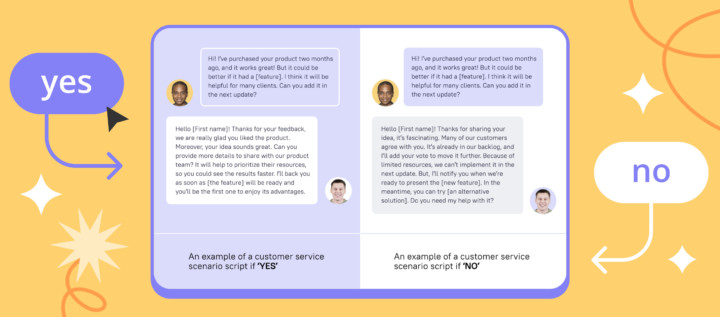What is an AI sales assistant? Understanding its role in modern sales

Introduction
In today’s competitive business environment, incorporating artificial intelligence into sales procedures is seen as a game-changing strategy. AI sales assistants are more than tools; they signal a major change in how companies interact with customers and streamline their operations.
By automating tasks, like assessing leads and scheduling appointments, these smart systems boost efficiency and increase conversion rates, enabling sales teams to concentrate on fostering valuable connections. In today’s business landscape, where staying ahead is crucial for success and profitability in the sales sector and beyond, companies are increasingly turning to AI technology for revenue growth and valuable insights integration.
However, deploying AI in sales comes with its fair share of obstacles, such as data privacy issues and the requirement for comprehensive training.
This piece dives into the complex realm of AI-based sales support systems, delving into their functionalities, advantages, hurdles, and the exciting developments that are molding their path forward in the sales arena.
Defining AI sales assistants: An Overview
AI sales assistants are game-changers in the revenue operations landscape. They leverage artificial intelligence to drive results that benefit both businesses and their clients. Take appointment bookings, for instance. These tools can automate up to 90% of the process, effectively sorting leads into high and low-quality categories. This isn’t just about saving time on mundane tasks; it’s about ramping up engagement and providing teams with data-driven insights they can act on.
Before these solutions came along, clients were drowning in challenges. Delayed responses, missed service level agreements, and chasing low-quality leads were all too common. These issues were like weights dragging down revenue results. Interestingly, about 30% of business owners now expect AI to draft website content for them. This shows a clear trend: businesses are increasingly relying on AI tools to streamline operations. By utilizing natural language processing and machine learning, an AI sales assistant can analyze client data and predict buying behaviors with impressive accuracy.
Communication is key in sales, and these tools enhance the dialogue between representatives and potential clients.
For example, Dashly‘s MQL lead management system can schedule 70–90% of meetings automatically. Plus, it boosts email open rates to 50–60%, well above the industry average.
Dashly doesn’t stop there. They boast a 99% accuracy rate in predicting meeting totals and a 98% accuracy in revenue forecasts. These numbers speak volumes about the effectiveness of their features. The economic impact of AI innovations is staggering, with projections suggesting over $170 billion in annual revenue from AI-driven technologies. This underscores the potential of AI support tools to significantly boost profits for small businesses.
The bottom line is clear: these innovations are critical. They streamline processes and enhance efficiency. In a competitive market, adopting an AI sales assistant isn’t just a nice-to-have; it’s a must for companies looking to maintain an edge and improve their revenue outlook.

Key features and functionalities of AI sales assistants
AI sales assistants are game-changers in the business landscape. Think of them as the Swiss Army knives of commercial operations. They don’t just help; they transform how sales teams operate.
- Lead qualification. These tools sift through new leads to assess their potential value. They help sales teams focus on high-value prospects, boosting conversion rates. It’s like having a GPS for your sales efforts—no more driving in circles. You save time and significantly increase effectiveness.
- Automated appointment scheduling. This feature takes the headache out of arranging meetings. By managing calendars, AI allows your team to focus on what really matters—selling. With this automation, scheduling conflicts become a thing of the past. When your reps can spend more time selling and less time planning, productivity skyrockets.
- Data analytics is another critical area. AI tools provide insights into consumer behavior and purchasing patterns. This is crucial for teams navigating today’s shifting market landscape. With real-time data, businesses can make informed decisions. Consider this: 80% of Americans believe AI can improve accessibility and affordability in healthcare. That’s a clear indication of growing acceptance of AI’s potential.
- Communication is where AI sales assistants really shine. They use client data to personalize interactions, enhancing engagement and building stronger relationships. And when it comes to connecting with Customer Relationship Management (CRM) systems, these assistants integrate seamlessly. This ensures that all information is synced and readily available, painting a comprehensive picture of client interactions essential for effective marketing strategies.
However, there’s a gap to bridge. According to Zendesk, about 34% of customer service reps are familiar with their department’s AI strategy. This highlights a significant opportunity for education and growth in this area. Take Tipalti, for example. Their use of AI automation not only reduces errors but also speeds up processes, allowing teams to focus on complex projects and strategic initiatives.
Looking ahead to 2024, AI support tools are set to evolve further. Expect improvements in lead evaluation and automated scheduling. Plus, AI solutions are helping organizations manage and integrate data from various sources, creating centralized databases for easier access and knowledge extraction. In the business world, that’s not just a nice-to-have; it’s essential.

Benefits of implementing AI sales assistants in sales teams
AI support representatives are game changers when it comes to transaction processes. Here’s why you should pay attention:
- Enhanced productivity. Automating tasks means your team can focus on what really matters — building and nurturing client relationships. It’s like shifting from manual labor to using power tools; the difference in efficiency is staggering.
- Improved conversion rates. AI-powered analytics pinpoint promising leads, increasing your chances of success. Think of it as having a treasure map in a sea of potential clients.
Recent research backs this up. Companies leveraging AI tools see a significant boost in conversion rates and revenue growth, especially in email marketing. About 41% of marketers report increased revenue from AI-enhanced campaigns. That’s not just a statistic; it’s clear evidence that integrating AI into your operations pays off.Personalized interactions driven by AI don’t just enhance user experience — they build client satisfaction and loyalty. In today’s competitive landscape, these factors are crucial.
- Data-driven decision making. With access to robust analytics, sales teams can make informed decisions based on client behavior and market trends. This insight isn’t just helpful; it’s a competitive advantage that can set you apart.
AI sales assistants offer the flexibility needed to support team growth, regardless of size. They ensure consistent performance and support, which is essential for scaling your operations.
And let’s not overlook public sentiment. A striking 66% of people are optimistic about the impact of AI technologies on their daily lives. This reflects a growing acceptance of innovation across industries.
Looking ahead, Gartner predicts that by 2026, adopting conversational AI in service operations could save $80 billion in contact center labor costs. This figure underscores the financial benefits of employing AI-driven solutions.
The case study ‘How AI Boosts Revenue in Email Marketing’ further illustrates the tangible results from integrating AI into marketing strategies. This isn’t just theory; it’s a roadmap to success.

Challenges and considerations in using AI sales assistants
AI-powered commercial assistants are a game changer, but they come with their own set of challenges. Let’s break it down.
- Privacy concerns are at the forefront. Companies have to be meticulous about complying with data privacy laws when they roll out AI technologies that tap into customer data. It’s no longer just a checkbox; it’s a necessity. A staggering 85% of people believe that a united effort is essential to ensure the safety and security of AI applications. If you think you can skip this step, you’re setting yourself up for a backlash.
- Integrating AI into existing systems isn’t a walk in the park either. You might face hurdles that disrupt your established processes. Think of it like trying to fit a square peg into a round hole. It requires careful planning and execution.
- Now, let’s talk about training. To truly harness the power of an AI sales assistant, your sales teams need proper training. This isn’t just a minor inconvenience; it involves time and money. Karkhanis makes a crucial point: investing in AI technology while simultaneously developing your workforce is not just smart — it’s essential. This dual approach doesn’t just make your teams more efficient; it boosts their engagement and commitment. In the end, you’ll see more cohesive teams and a significant uptick in revenue.
- But here’s the catch: we can’t lose sight of human skills amid all this AI integration. Over-reliance on AI could dull your team’s abilities. Experts warn that companies must grapple with the complexities of AI decision-making and be wary of biases in algorithms. This is not just an operational issue; it’s a moral one.
- The debate about whether AI sales assistants will replace human salespeople is alive and well. Real-world examples, like discussions on “AI in Sales; Will AI Replace Human Salespeople?” highlight the need to tackle these challenges head-on while using AI to boost revenue effectively.
- Finally, let’s not overlook the broader implications. Look at Spotify, for instance. Their use of AI to detect fake streaming activity and personalize music suggestions is a prime example of how AI can revolutionize industries. The potential is immense, but so are the responsibilities that come with it. Embrace AI, but do it wisely.

The future of AI sales assistants: Trends and innovations
The landscape of AI support tools is on the brink of a major shift, driven by some powerful advancements.
- First up, we have new and improved machine learning capabilities. As AI technology continues to evolve, these support tools will get much better at understanding customer preferences and predicting their behaviors. This means they’ll be able to engage with clients in a more effective way. Take Dashly, for instance. It streamlines 90% of appointment scheduling and boosts lead quality by sorting them into high and low categories. That’s not just efficiency; that’s smart business.
- Next, we’ll see AI helpers using advanced algorithms to provide highly personalized experiences. They’ll tailor interactions based on what individual customers need and want. Dashly’s self-service funnel is a prime example of this. It automates a large chunk of non-MQL leads — about 60-70% — which frees up sales teams to focus on what really matters: closing deals.
- Now, let’s talk about the future. The integration of AI sales assistants with cutting-edge technologies like augmented reality (AR) and virtual reality (VR) could create immersive selling environments that elevate the customer experience. But amid all this innovation, we can’t forget about the importance of ethical AI. As conversations around data security and ethical values gain traction, there will be a push for AI systems that prioritize ethical decision-making.
- Collaboration is also key. AI sales assistants and human marketing teams will likely work together to boost revenue performance. Dashly’s predictive capabilities are impressive — 99% accuracy in meeting goals and 98.3% accuracy in revenue predictions. That’s the kind of impact that can transform a business.
Before integrating AI, clients faced hurdles like slow response times, poor adherence to service level agreements (SLAs), and inefficiencies with unproductive leads. These issues were real roadblocks, especially when it came to promoting high-end offerings.
Looking ahead, many professionals believe AI will significantly enhance buyers’ research capabilities by 2024, enabling them to make informed decisions independently. Barbara Kozanecka and a HubSpot survey echo this sentiment, highlighting AI’s potential to improve buyers’ research skills. As buyers increasingly take charge of their research without sales team interaction — like in the case study “Adapting to Buyers’ Shift to Independent Research” — the role of AI sales assistants in navigating this shift and streamlining sales processes becomes crucial.
In short, the future of AI in sales and support is not just about technology; it’s about creating smarter, more ethical, and more collaborative environments that drive real results.

Conclusion
The integration of AI sales assistants into business processes marks a change in how sales teams interact with clients and handle their tasks efficiently. With features like automating lead assessments and setting up appointments in place, these smart technologies not only boost efficiency but also enhance conversion rates and customer satisfaction. The information obtained from AI analytics equips sales teams with insights to make well-informed choices, ultimately leading to revenue expansion and staying ahead in a competitive market landscape.
The advantages of using AI in sales are significant; however, organizations face hurdles such as privacy issues and the importance of proper training for employees to effectively incorporate AI tools without losing their engagement or expertise in the field of salesmanship, which is essential for maximizing the benefits of AI technology in sales strategies.
In the coming years, the potential of AI sales assistants seems promising. With progress in machine learning and ethical AI principles, they will be better equipped to offer tailored interactions and promote teamwork between tech and human sales squads. As companies adjust to changes in consumer habits and tastes, AI sales assistants will be crucial in shaping sales plans to help businesses meet customer needs and boost their success.








